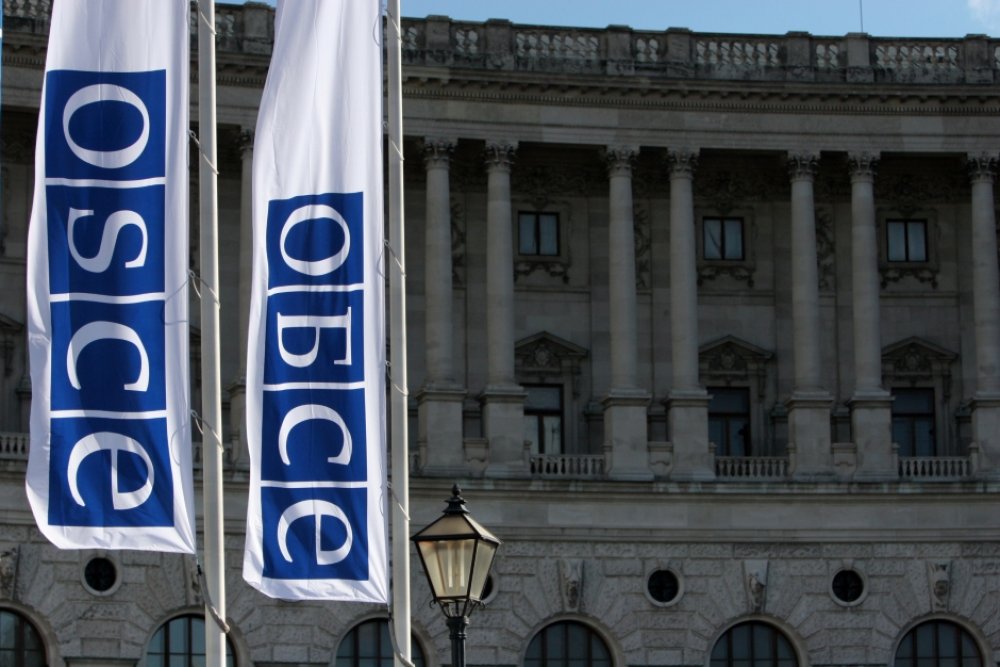In the right place at the right time: Use the OSCE to defuse the crisis in Ukraine
The corridors of the Hofburg were unusually crowded with diplomats and filled with journalists when the Swiss OSCE Chairmanship convened a special meeting of the OSCE Permanent Council (PC) on 3 March in Vienna. When it became known during the weekend that US President Barack Obama and German Chancellor Angela Merkel had suggested to Russian President Vladimir Putin to bring in the OSCE to help ease growing tensions in Ukraine and especially the Crimean peninsula, all previous efforts by the Swiss OSCE Chairmanship to promote the OSCE’s role in the Ukrainian crisis seemed to have paid off. In my previous blog entry of 15 February I made a strong case for the OSCE helping settle the crisis in Ukraine not only because the Organization has the expertise and ideal tools available to do so but also because the current Swiss OSCE Chairmanship is in an ideal position to lead such efforts. It seems several leaders are starting to share this view.
Monday’s meeting confirmed that if the OSCE is called upon it will act swiftly and flexibly. In a concerted effort, the Swiss OSCE Chairmanship together with its recently appointed Personal Envoy on Ukraine, Ambassador Tim Guldimann, Heads of OSCE Institutions and the OSCE Secretary General presented a package of comprehensive measures and tools that the OSCE can start to apply instantly. Ukraine declared its readiness to work with the OSCE and the international community at large and called for the establishment of a direct political dialogue.
The OSCE Office for Democratic Institutions and Human Rights (ODIHR) announced that it will send an election observation mission to the 25 May early presidential elections in Ukraine after the Office received an official invitation to observe from the Ukrainian authorities on that same day. Astrid Thors, the OSCE High Commissioner on National Minorities (HCNM), arrived in Ukraine on 2 March and will be joined this week by Ambassador Guldimann, the OSCE Representative on Freedom of the Media, Dunja Mijatović as well as a small team of experts from the OSCE Secretariat. The OSCE HCNM has long-standing expertise in helping to ensure minority rights in the OSCE region through silent diplomacy. For example, the HCNM has been successful in helping to ensure rights of Russian speaking minorities in the Baltic States after their declaration of independence. In addition, more than a decade ago, the first High Commissioner, Max van der Stoel, helped to calm inter-ethnic tensions on the peninsula. Similarly, the HCNM can now help to ensure respect for the rights of Russian speakers as well as Tartars in Crimea. The OSCE also has an Office in Kyiv which carries out a wide range of activities in the areas of combating trafficking, democratization and rule of law. These activities can be augmented and adapted (for example to include activities in the area of police reform) in cooperation with the new authorities in Kyiv.
Ambassador Tim Guldimann (who has considerable OSCE experience in Chechnya and Croatia) described the current situation as “fragile”. However, he also stated that all his interlocutors underlined their “strong will and great openness for international cooperation, specifically with the OSCE”. He confirmed that consensus seemed to be emerging on a contact group to be formed among all parties under the aegis of the OSCE. Proposals are also on the table to send short-term fact-finding missions and longer term monitoring missions to Ukraine to promote political dialogue and reduce tensions. However, for such missions to be established a consensus decision in the OSCE Permanent Council is needed and therefore this proposal is still under negotiation.
At this time of crisis, the OSCE is an ideal platform to facilitate dialogue and help bring all parties together. First, the OSCE as well as the Swiss Chairmanship are neutral and will not take sides. Second, all parties involved in the crisis are OSCE members, and third Ukraine is still part of the OSCE Troika. These advantages coupled with the OSCE’s expertise in the areas of national minorities, democratization and human rights should convince President Putin – if he is looking for way out while still protecting the interests of Russia and Russians in Ukraine – that this is the way to go ahead. The OSCE has demonstrated its readiness to assist. Will the opportunity be seized?



Comments
* Your email address will not be published